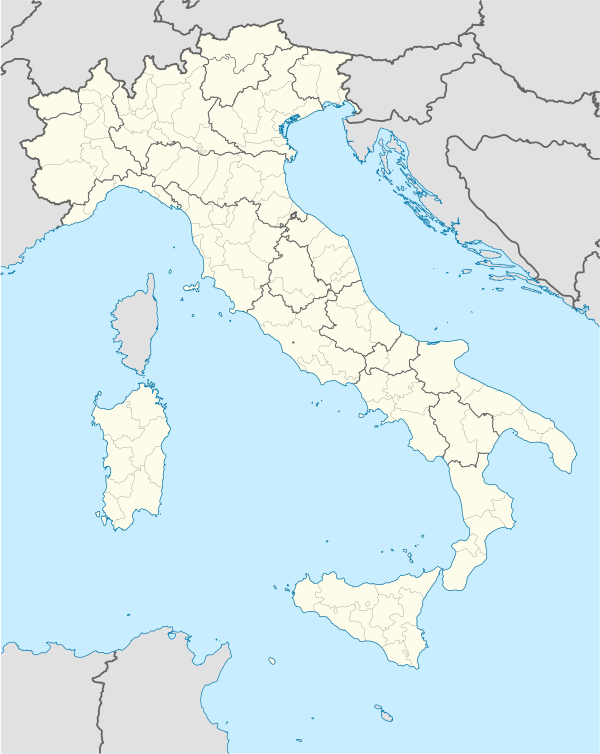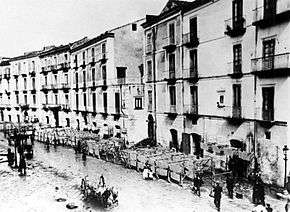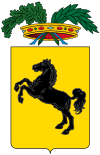Gragnano
| Gragnano | |
|---|---|
| Comune | |
|
Church of Santa Maria of the Assumption. | |
 Gragnano Location of Gragnano in Italy | |
| Coordinates: 40°41′N 14°31′E / 40.683°N 14.517°E | |
| Country | Italy |
| Region | Campania |
| Metropolitan city | Naples (NA) |
| Frazioni | Aurano, Caprile, Castello, Iuvani |
| Government | |
| • Mayor | Paolo Cimmino |
| Area | |
| • Total | 14.6 km2 (5.6 sq mi) |
| Elevation | 141 m (463 ft) |
| Population (31 June 2015) | |
| • Total | 29,310 |
| • Density | 2,000/km2 (5,200/sq mi) |
| Demonym(s) | Gragnanesi |
| Time zone | UTC+1 (CET) |
| • Summer (DST) | UTC+2 (CEST) |
| Postal code | 80054 |
| Dialing code | 081 |
| Patron saint | Saint Sebastian |
| Saint day | January 20 |
| Website | Official website |
Gragnano, a hill town located between a mountain crest and the Amalfi Coast, is a comune (municipality) in the Metropolitan City of Naples in southern central Italy's Campania region, located about 30 kilometres (19 miles) southeast of Naples city.
Gragnano borders the following municipalities: Agerola, Casola di Napoli, Castellammare di Stabia, Lettere, Pimonte, Ravello, Sant'Antonio Abate, Santa Maria la Carità, Scala.
In 1169 its name was added to the title of the bishopric of nearby Lettere, which was thus renamed Roman Catholic Diocese of Lettere-Gragnano, but Gragnano never had a co-cathedral and its title was dropped when the suppressed see was nominally restored as titular bishopric of Lettere. [1]
Pasta

Gragnano is home of some of the best dried pasta in Italy.[2] A group of artisanal producers in the area are seeking a European Union designation that would protect the pasta's provenance.[2]
Gragnano's "main street was laid out expressly to capture the mountain breeze mixed with sea air back when pasta makers hung spaghetti on drying rods like laundry," according to a Forbes Life write up.[2] More recently heaters are used to dry the pasta at low temperatures (approximately 122 degrees Fahrenheit) for two days and it is shaped with bronze to give it a rough texture, producing a pasta with "nuttier aroma and chewier mouth feel"[2]
Notable locals
The actor Tito Vuolo was born there.[3]
References
- ↑ http://www.gcatholic.org/dioceses/former/t1015.htm
- 1 2 3 4 Mimi Murphy Gragnano Pasta page 36 Forbes Life
- ↑ "Tito Vuolo". IMdB. Retrieved 17 March 2014.
Sources and external links
![]()
